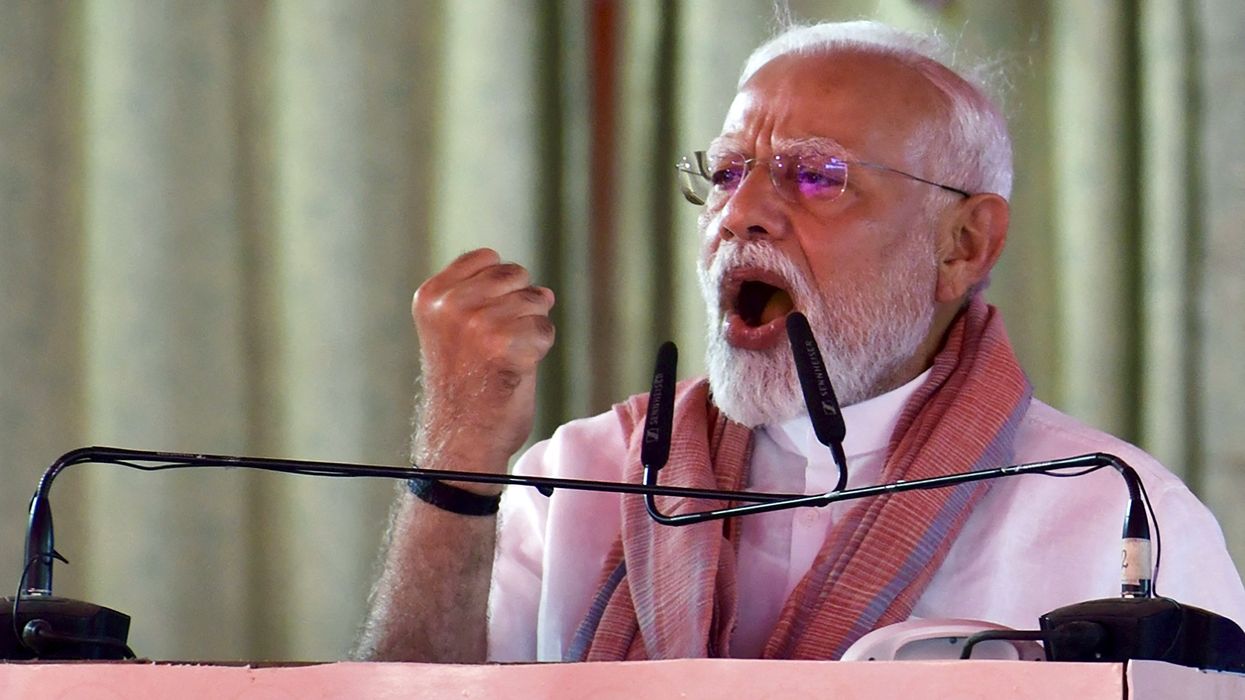INDIA and Pakistan have exchanged a series of diplomatic measures after prime minister Narendra Modi blamed Pakistan for a deadly shooting in Pahalgam, Kashmir, in which 26 civilians were killed.
Modi said India would identify and punish those behind the attack and accused Pakistan of supporting cross-border terrorism.
"I say to the whole world: India will identify, track and punish every terrorist and their backer," Modi said in his first speech since the incident. "We will pursue them to the ends of the Earth."
Indian police have identified two of the three suspected gunmen as Pakistani nationals.
The attack in Pahalgam, a tourist area in the Muslim-majority Kashmir region, was the deadliest against civilians in 25 years. Previous attacks had mostly targeted Indian security forces.
Following the attack, New Delhi suspended a water-sharing treaty, shut down the main land border crossing with Pakistan, downgraded diplomatic ties, and withdrew visas for Pakistani citizens.
In response, Pakistan prime minister Shehbaz Sharif convened a meeting of the National Security Committee on Thursday in Islamabad, attended by top military officials including Army Chief Asim Munir.
"Any threat to Pakistan's sovereignty and to the security of its people will be met with firm reciprocal measures in all domains," said a statement from Sharif’s office.
The statement added: "In the absence of any credible investigation and verifiable evidence, attempts to link the Pahalgam attack with Pakistan are frivolous, devoid of rationality and defeat logic."
Tit-for-tat measures
Pakistan responded by expelling Indian diplomats, cancelling visas for Indian nationals except Sikh pilgrims, and ordering Indian military advisers to leave the country.
Islamabad also said the Wagah border crossing in Punjab would be shut from both sides. It warned that any Indian move to stop water supply from the Indus River would be considered an "act of war".
Indian police said the three gunmen belong to Lashkar-e-Taiba (LeT), a Pakistan-based group listed by the United Nations as a terrorist organisation.
Police have announced a reward of two million rupees (around $23,500) for information leading to each gunman’s arrest.
While most of the actions by both sides are symbolic, there are concerns in India and Pakistan that the tensions could escalate further. In 2019, a suicide bombing in Kashmir that killed 41 Indian troops led to Indian airstrikes in Pakistan.
At the Wagah-Attari border, some Pakistani nationals had already begun leaving.
"We just want to go home," said Mehnaz Begum, a businessman from Karachi.
Modi: ‘Will break their backbone’
Modi led two minutes of silence in memory of the victims. All but one of those killed were Indian nationals.
"I say this unequivocally: whoever has carried out this attack, and the ones who devised it, will be made to pay beyond their imagination," he said during a visit to Bihar.
"Whatever little land these terrorists have, it's time to reduce it to dust. The willpower of 1.4 billion Indians will break the backbone of these terrorists."
Kashmir has been divided between India and Pakistan since 1947. Both countries claim the territory in full but control different parts.
An insurgency has continued in Indian-administered Kashmir since 1989, with rebel groups calling for either independence or a merger with Pakistan.
Indian forces have launched a search operation in the region, and several people have been detained. The army said a soldier was killed on Thursday during a clash with gunmen in Basantgarh, Kashmir.
Shock and fear in Kashmir
Srinagar, the capital of Indian-administered Kashmir, remained calm on Thursday, but residents expressed concern about the impact of the attack.
"Everyone I have spoken to is heartbroken and shocked," said Siddhi Wahid, a Kashmiri historian and political commentator.
The attack occurred on Tuesday as tourists visited Pahalgam. According to survivors interviewed by Indian media, the gunmen emerged from nearby forests and fired into crowds.
Some said those who recited the Islamic declaration of faith were spared.
In Pakistan, activists and religious groups held anti-India protests.
The attack has led to increased tension for Kashmiri students in India, who say they are facing harassment.
"It is a deliberate and targeted campaign of hate and vilification against students from a particular region and identity," said Nasir Khuehami, convenor of the Jammu and Kashmir Students Association.
(With inputs from agencies)





